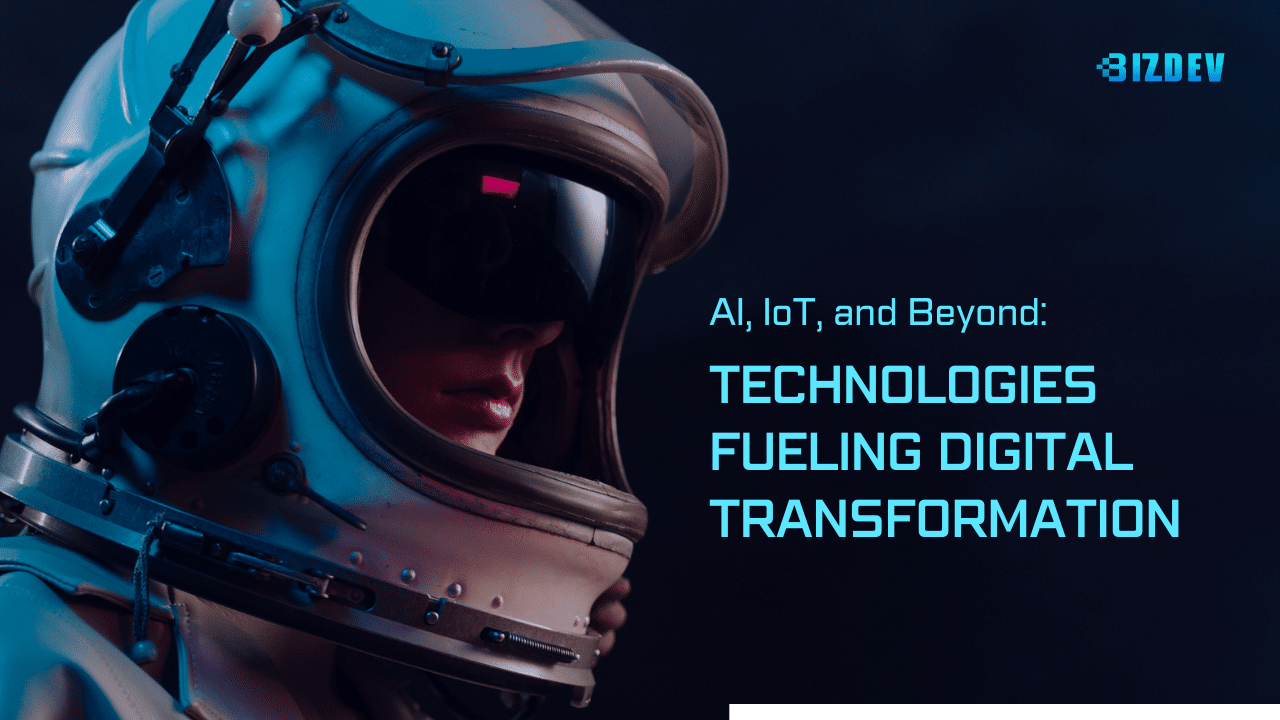In the dynamic landscape of technological innovation, digital transformation is no longer a buzzword – it’s a strategic imperative. Organizations across industries are harnessing cutting-edge technologies to drive efficiency, enhance customer experiences, and stay ahead of the curve. In this blog post, we explore three pivotal technologies that are shaping the future of business: Artificial Intelligence (AI), Internet of Things (IoT), and beyond.

Artificial Intelligence (AI)
AI is more than just sci-fi fantasies; it’s a game-changer. Here’s how AI is fueling digital transformation:
Machine Learning and Predictive Analytics
- Organizations leverage machine learning algorithms to analyze vast datasets, uncover patterns, and make informed decisions.
- Predictive analytics enables proactive problem-solving by forecasting trends, customer behavior, and market shifts.
Natural Language Processing (NLP)
- NLP allows machines to understand and generate human language. Chatbots, virtual assistants, and sentiment analysis are powered by NLP.
- Conversational AI enhances customer interactions, streamlining support and engagement.
Computer Vision
- Computer vision systems interpret visual data from images and videos. Applications range from facial recognition to autonomous vehicles.
- Retailers use computer vision for inventory management and personalized shopping experiences.
Internet of Things (IoT)
The IoT connects devices, sensors, and everyday objects to the internet. Here’s how it drives digital transformation:
Smart Cities and Infrastructure
- IoT-enabled smart cities optimize traffic flow, reduce energy consumption, and enhance public safety.
- Smart grids monitor energy distribution, minimizing wastage and improving reliability.
Industrial IoT (IIoT)
- IIoT transforms manufacturing, logistics, and supply chains. Sensors track equipment health, predict maintenance needs, and improve efficiency.
- Real-time data empowers decision-makers, ensuring agile responses to production challenges.
Healthcare and Wearables
- IoT wearables monitor vital signs, track fitness, and enhance patient care.
- Remote patient monitoring and telehealth improve access to healthcare services.
Beyond AI and IoT
Digital transformation extends beyond AI and IoT:
Blockchain
- Blockchain ensures secure, transparent transactions. It revolutionizes supply chains, financial services, and identity management.
- Decentralized applications (DApps) redefine trust and ownership.
Edge Computing
- Edge computing processes data closer to the source (devices or sensors), reducing latency and enhancing real-time decision-making.
- It’s critical for applications like autonomous vehicles and smart factories.
Challenges and Opportunities
- Data Privacy and Security: Balancing innovation with privacy protection is essential.
- Skills Gap: Organizations need skilled professionals to drive digital initiatives.
- Legacy Systems: Migrating from legacy systems to modern technologies poses challenges.
Conclusion
AI, IoT, blockchain, and edge computing are not isolated trends—they converge to shape a digitally transformed world. Organizations that embrace these technologies strategically will thrive in the era of disruption. Remember: The future belongs to those who innovate today.
